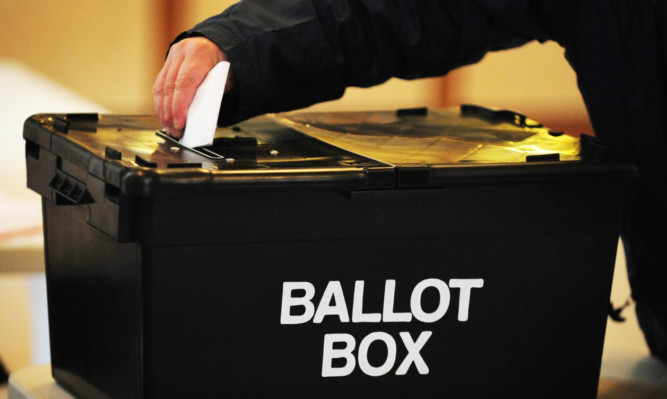Plans for votes at 16 for elections to the Scottish Parliament and local councils north of the border are being pushed through Westminster without sufficient scrutiny, a parliamentary report has warned.
The House of Lords Constitution Committee said the proposals amount to a “significant constitutional change” with implications for the whole UK, and should not be enabled by a procedure known as a statutory instrument, which cannot be amended by either of the Houses of Parliament.
The instrument, which would give the Scottish Parliament powers to grant voting rights to 16 and 17-year-olds in time for elections to the devolved assembly and local authorities in 2016, is likely to lead to pressure to lower the voting age in UK-wide polls, including the general election of 2020, the cross-party committee warned.
And the peers raised concerns that votes at 16 would result in the personal details of children as young as 15 being printed on the publicly available electoral register, potentially creating issues under data protection laws.
The proposed new powers for the Scottish Parliament are being introduced as part of the Government’s response to the Smith Commission report on further devolution to Scotland in the wake of last year’s independence referendum.
But the new report points out that local government was outside the remit of the Smith Commission, whose recommendations on lowering the voting age applied only to elections to the Scottish Parliament. And it noted that draft clauses devolving electoral law to Holyrood allow changes only with the support of two-thirds of MSPs, rather than the simple majority required for votes at 16.
“The changes do not directly affect the franchise for UK general elections, European Parliamentary elections, or local government elections beyond Scotland, and therefore the order has no immediate constitutional implications for the rest of the UK,” said the report. “However, it seems likely that the Scottish Parliament will legislate for a reduction in the voting age for all future Scottish Parliament and Scottish local government elections and this may lead to pressure for similar changes to the franchise in the other devolved territories.”
The “potentially piecemeal and incremental approach” contrasts sharply to the two commissions which took evidence before the voting age was lowered to 18 in the 1960s, as well as the process in the Republic of Ireland, where proposals to allow votes at 16 were studied by a Constitutional Convention and must obtain public approval in a referendum to become law.
“A voting age of 16 remains very uncommon around the world, and is not a change which any of the UK’s main European neighbours has adopted. Nor is it known to be UK Government policy that the voting age should be lowered,” said the report.
“The House may wish to consider whether sufficient consideration has been given to the effect of this proposal on the United Kingdom constitution as a whole.”
Committee chairman Lord Lang of Monkton said: “Changes to the law which impact on the UK constitution, as the proposal to give the Scottish Parliament the power to amend the voting age clearly does, should be subject to full and proper Parliamentary scrutiny – not implemented by an unamendable statutory instrument.
“The proposed change will have knock-on effects across the rest of the UK and we are concerned that not enough thought has been given to this impact.”
